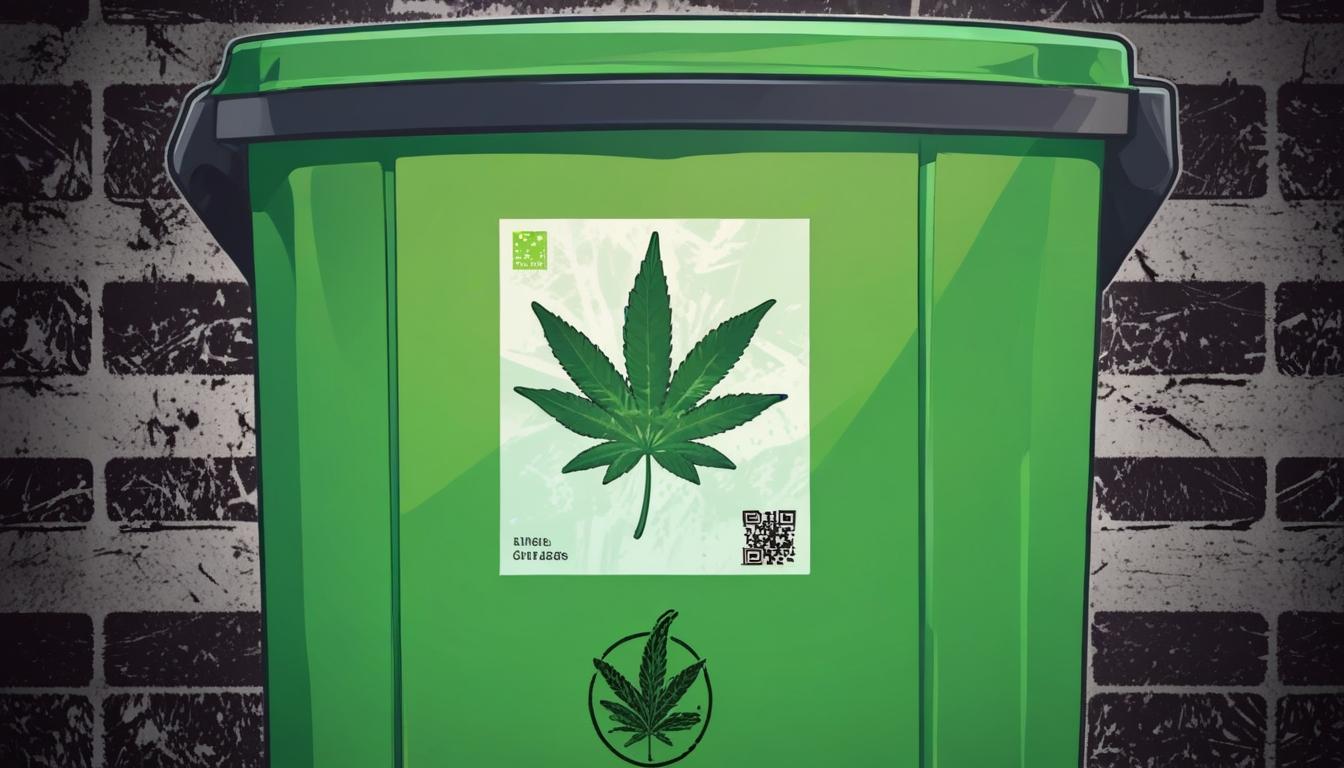While walking through Burton upon Trent, Steve stumbled upon eye-catching QR code stickers plastered on public bins and lamp posts. Bearing a vibrant green cannabis leaf and the enticing message "get your delivery," these stickers intrigue those looking for alternatives to traditional drug procurement. A former prison officer seeking relief from severe pain, Steve felt reluctant to approach street dealers and opted instead to scan a code that led him to a professional-looking website, complete with customer reviews and promises of next-day delivery.
Such stickers have proliferated across the UK, surfacing in cities like Birmingham, Glasgow, and London, as well as smaller towns such as Shrewsbury and Droitwich. Alarmingly, many of these stickers have appeared in close proximity to schools, universities, and even police stations, raising concerns about their potential impact on local youth and community safety.
An investigation by Sky News uncovered a hidden underbelly connected to this trend. The operation appears to involve a network of Lithuanian nationals whose addresses link back to a small area of East London. Some individuals associated with the stickers have links to serious criminal activities back in Lithuania, including kidnapping and torture. Transaction analysis using publicly available tools revealed that significant monetary flows—from various payment methods—are associated with the online sales, with one cryptocurrency wallet receiving an estimated $109,000 by mid-March; however, the actual figures are likely even higher.
Steve’s experience is echoed by others like Ben, a student who stumbled upon the QR code while at the University of York. Driven by genuine curiosity about the ease of procurement, he ordered a £10 pre-rolled joint, delivered in branded packaging that he described as "clean and professional." However, this initial thrill was short-lived; for personal reasons linked to his mental health, he decided not to purchase again.
Beyond the appeal of convenience, experts are sounding the alarm about the potentially dangerous nature of these products. Dr Simon Erridge from the Curaleaf Clinic warns that individuals like Steve and Ben are engaging in risky behaviour likened to "playing Russian roulette." His clinic conducted research revealing alarming contamination rates among illegal cannabis products, with many samples failing to contain any compounds derived from the cannabis plant and others rife with harmful substances.
As public attention shifts towards these developments, local authorities have begun to respond. Police across various regions are aware of the stickers and some have attempted to track down those behind them. The situation escalated in November 2024 when authorities made an arrest in Shrewsbury but, broadly speaking, law enforcement is struggling to keep pace with the rapid evolution of these online drug distribution tactics. Police responses typically include advice against scanning the QR codes and efforts to remove the stickers, but the anonymity of the internet complicates the matter.
In a climate where online cannabis purchasing is on the rise, particularly among younger adults, authorities are concerned about the implications for public health and safety. National Crime Agency spokespersons have noted that many organised crime groups now utilise social media and advanced communication platforms to market illicit products, which complicates efforts to combat drug trafficking.
Despite criminal penalties associated with drug possession and supply—ranging from fines to potentially fourteen years in prison—many individuals continue to take risks, viewing online purchasing as a safer alternative to street transactions. As one user expressed, policing might be more lenient on minor infractions, leading to a pervasive belief that they can evade consequences. While the fears of rampant drug misuse loom large in communities, experts contend that both consumers and law enforcement alike are entering uncharted territory in the quest to manage the burgeoning online drug market.
The implications are stark: as the boundaries between legitimate commerce and illicit drug sales blur, the systems established to safeguard public welfare find themselves increasingly challenged by the clever deployment of technology. The QR code stickers, no longer mere oddities but symbols of a concerning trend, pave a dangerous path into a future where accessibility outpaces regulation in the realm of substance use.
Reference Map
- Paragraphs 1-2, 5-6, 8
- Paragraphs 3-4
- Paragraphs 4, 6
- Paragraph 5
- Paragraphs 5-6
- Paragraph 6
- Paragraphs 7-8
Source: Noah Wire Services
